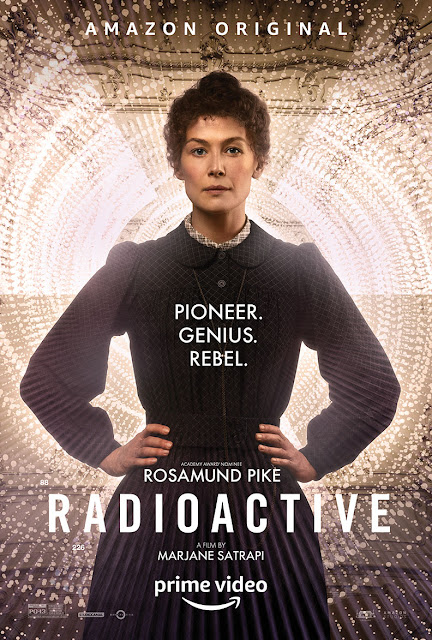Friday, February 18, 2022
Radioactive
Contagion
I rewatched "Contagion" after seeing it in the theater when it came out ten years ago.
I have never seen a more prophetic movie in my entire life. At least 80% of the film seems applicable to the current COVID-19 pandemic. The biggest difference is the deadliness of the disease, which instead of being about 2% for known cases is around 25%. But detail after detail comes up that I only recently learned about during the COVID crisis.
The movie has an 85% rating on Rotten Tomatoes, although not all the critics were equally enthusiastic. The audience score is only 63%, so I suspect that the subject matter might have turned off some people. Rotten Tomatoes describes it as, "Tense, tightly plotted, and bolstered by a stellar cast. Contagion is an exceptionally smart -- and scary -- disaster movie." I agree. It tells a fantastic story. My favorite movie critic, Richard Roeper, gives it 5 out of 5 stating, "Contagion" is a brilliantly executed disease outbreak movie."
Rating: A+.
Superman Returns
Perhaps the problem with the 2006 film is that it was an attempt to make a more modern Superman movie. Something that fits into a post 9-11 world. It has a more realistic feel to it compared to the 1978 original, although the year 2006 no longer feels modern. The movie is starting to feel dated.
I like the movie. I like the many themes it touches on. I love Kevin Spacey's performance as Lex Luthor. Somehow the execution is faulty. Its ideas are better than its implementation. Everything rushes by too quickly.The film really is a bit more glum. It turns into a well-made soap opera. There is an extreme emphasis on a love triangle between Superman, Lois Lane, and her new husband, as if dealing with relationships makes the movie more modern. It is a more emotional take on Superman, but interesting nevertheless.
The movie is essentially a sequel to Superman II. Brandon Routh looks similar to Christopher Reeve who played in the previous Superman movies, but he doesn't look as muscular as Christopher Reeve did. He doesn't fit the muscular image of Superman that audiences are used to.
The movie sets us up for a sequel that never came. Superman Returns was supposed to be a reboot of the franchise, which got rebooted again in 2013 by Man of Steel. Apparently, this wasn't the Superman we were looking for.
Rating: B.
Munich: The Edge of War
However, the high production quality and good acting make this movie worth watching. Jeremy Irons is delightful as Chamberlain. George MacKay and Jannis Niewöhner are good, playing their characters as people a little in over their heads. Hannes Wegener is great as a sadistic SS officer who is a former classmate of Paul's but suspects him of being part of a cabal.
The movie has been called revisionist because the ending portrays Chamberlain as being more clever than he may have actually been. According to the film, Chamberlain made the peace agreement with Hitler to buy time for England to prepare for war.
Rating: B+.




